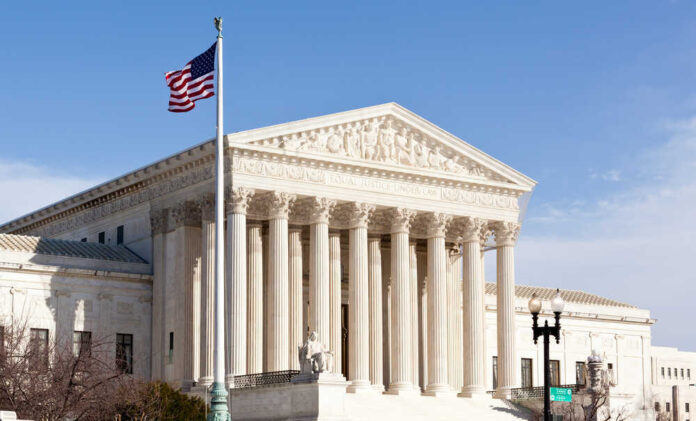
(Patriot.buzz) – In a new battle between citizen journalism and government outreach, the United States Supreme Court has practically sided with a citizen journalist as it has decided to reassess the case of Priscilla Villarreal, who was arrested under a Texas statute, raising concerns about First Amendment rights.
These developments spark debate over press freedom in an increasingly surveillance-driven era.
In a landmark decision, the Supreme Court overturned a lower court ruling that gave Texas officials qualified immunity after arresting Villarreal, a citizen journalist with a substantial following on Facebook.
Known as “Lagordiloca,” Villarreal reports on local crime in Laredo, Texas.
In 2017, authorities charged her with two felonies for revealing the identities involved in a CBP suicide and a fatal traffic incident.
The First Amendment guarantees free press rights, yet qualified immunity for police and officials poses challenges for citizen journalists.
Villarreal was apprehended under the vague accusation of soliciting nonpublic details from law enforcement—an infraction under a Texas law that was never actively enforced.
This law, criminalizing seeking information with “intent to obtain a benefit,” met widespread criticism, leading to the charges being dismissed, CBS News reports.
Priscilla Villarreal’s case underlines broader discussions about the definition of journalism today and the problematic interpretation of First Amendment rights.
Texas officials justified their actions by arguing that Villarreal sought leaks for personal gain.
Her legal team warns that such decisions risk empowering law enforcement to suppress dissenting voices.
“If the First Amendment means anything, it surely means that a citizen journalist has the right to ask a public official a question without fear of being imprisoned,” Judge James Ho, appointed by former President Donald Trump, declared, spotlighting the intimidation faced by Villarreal.
“If that is not an obvious violation of the Constitution, it’s hard to imagine what would be,” he added.
A federal district court initially favored law enforcement, granting them qualified immunity.
The 5th Circuit Court of Appeals overturned this decision, but later, the full 5th Circuit court sided again with the officials.
This time, the Supreme Court’s intervention demands a new examination, labeling the previous ruling a violation of constitutional rights.
Villarreal faces criticism from some legal figures.
US Circuit Judge Edith Jones, appointed under Ronald Reagan, disapproved of Villarreal’s methods, stating she “could have followed Texas law or challenged it before reporting nonpublic information.”
Such remarks reveal the entrenched struggles against the cloak of regulations hindering journalistic practices.
The outcome of Villarreal’s case is pivotal for journalists across the spectrum, setting a precedent for how First Amendment rights withstand against qualified immunity claims.
“This case is vital for free speech, a free press, and ensuring officials are accountable when they trample the First Amendment,” an advocate stressed, highlighting Villarreal’s fight against governmental suppression.
“The journalism of the last two-and-a-half centuries would be unrecognizable without the right to seek answers from public officials,” media conglomerates reminded in a brief supporting Villarreal.
Copyright 2024, Patriot.Buzz



















